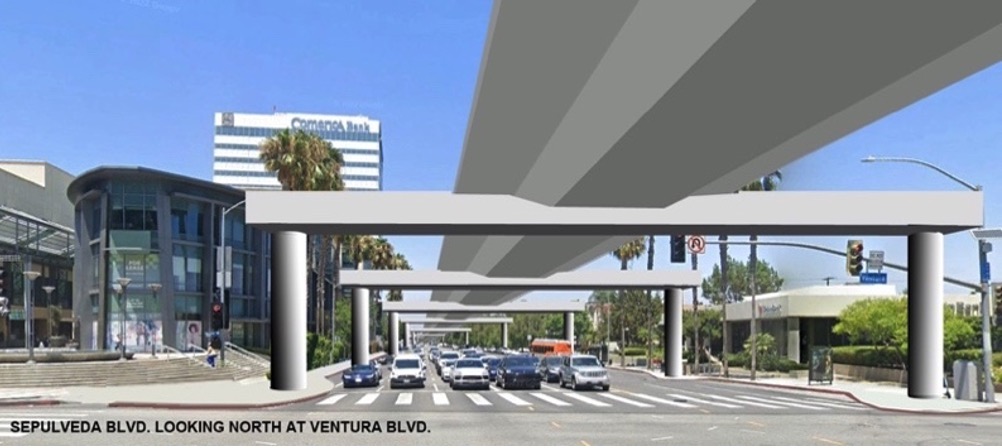Comments
[This is the eighth article in a series examining whether Metro can be a trusted steward for the Sepulveda Pass Transit project.]
LA TRANSPO - The tenth of my 20 questions to Metro CEO Stephanie Wiggins focused on the unintended consequences of Metro never having meaningful dialog with communities before developing concepts: “Why did Metro never acknowledge the unfairness of its original HRT3 concept with noisy elevated heavy rail trains operating 30 feet above Sepulveda Blvd for five miles in only the Valley and consider eliminating this concept early?”
Metro’s non-answer was so unresponsive that I wondered if they actually read my question: “The impact of noise on communities is one of the many possible impacts Metro studies when considering transit projects. It was specifically identified in the 2019 Feasibility Study as a potential impact related to elevated alternatives.” My question didn’t ask about noise. It asked “why” Metro thought this concept was fair to the Valley in the first place.
Metro never talked to any Valley organization or person before unilaterally deciding in 2018 that elevated heavy rail subway trains operating 30 feet above Sepulveda Blvd for five miles in Sherman Oaks and Van Nuys were a viable transit solution. Metro currently has no elevated subway trains anywhere in the county – and no plans to put them anywhere else. Valley residents immediately objected, but Metro ignored their comments and pleas to remove this unfair concept. The concept screws the Valley again on transit – “again” because today the Valley has only two Metro rail stations out of almost 90 rail stations countywide.
Metro first introduced the elevated concept at their June 2018 public meetings, eventually calling it HRT3. Bechtel proposed the elevated concept in August 2020. Metro selected Bechtel’s elevated concept for environmental analysis in November 2021 – calling it Alternative 4. I call it the “Horrible Halfway” because it’s subway under the Westside and Pass but elevated trains in the Valley. Metro included this concept for one and only one reason – it’s cheaper than a full subway under the Westside, Pass, and Valley. Sorry Metro, Measure M divided the Sepulveda Pass project budget into equal halves – half Westside and half Valley. Alternative 4 is not the Valley’s fair and equal share.

Metro doesn’t care that Alternative 4 will destroy Sepulveda Blvd. They don’t care that 12,000 residents who live near it will never again have a quiet life. They don’t care that eminent domain in Sherman Oaks will eliminate 150+ homes, condos, apartments, and businesses where the elevated tracks exit the hillside at Sepulveda and Valley Vista Blvds. Metro never showed Valley residents how Alternative 4 impacts them. Metro never provided a rendering of Alternative 4 tracks exiting the destroyed hillside at Sepulveda and Valley Vista. An architect friend and I put together the rendering shown at the top of this article and the one at the right showing the impacts to Sepulveda Blvd. We used information from Bechtel’s proposal to Metro. Yes, the huge structures supporting the tracks above Sepulveda Blvd are real and needed to protect an 8-foot water main under Sepulveda. Sherman Oaks and Van Nuys are terrified. They should be. See the scary one-minute video at https://youtu.be/rlBIACa_2NM.
The Valley deserves an explanation for the Alternative 4 Horrible Halfway – and probably an apology. I asked Metro for an explanation in my question 10, but they flubbed the answer. Metro must remove Alternative 4 from further consideration. Stop wasting public money studying it.
(Bob Anderson is a nuclear engineer with 50 years engineering and business development expertise in the aerospace and high-technology sectors. He is VP and Transportation Committee Chair of the Sherman Oaks Homeowners Association. Contact him at [email protected].)






